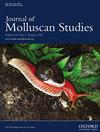Effects of water temperature on glochidium viability of Unio crassus and Sinanodonta woodiana: implications for conservation, management and captive breeding
IF 1.2
4区 生物学
Q2 MARINE & FRESHWATER BIOLOGY
引用次数: 8
Abstract
The global decline of freshwater bivalves (Unionida) has prompted many programmes for their conservation and augmentation, which often include a captive breeding component. One key point to such programmes is the collection, maintenance and use of mussel glochidium larvae, which require attachment to a fish host in a sensitive parasitic stage of their life cycle. Understanding the thermal limits of glochidia can increase knowledge of mussel larval survival and ultimately aid in the development of conservation programmes. Glochidia of the endangered thick-shelled river mussel Unio crassus and the non-native Chinese pond mussel Sinanodonta woodiana were observed for active clamping ability at 5, 15, 17, 20 and 25 °C over the course of a 7-d period. The results from this study confirm that an inverse relationship between water temperature and larval viability can be observed in both species. Additionally, the significantly higher thermal tolerance of S. woodiana indicates that the species exhibits competitive invasive behaviour beginning from the larval stage. These findings also suggest that the collection and transportation of glochidia from genetically important yet distant populations is feasible if the larvae can be maintained at temperatures between 5 and 15 °C.水温对厚脊藻和木纹Sinanodonta glochidium活力的影响:对保护、管理和圈养的影响
全球淡水双壳类(Unionida)的减少促使许多保护和繁殖计划,其中通常包括圈养繁殖部分。此类计划的一个关键点是收集、维护和使用贻贝球藻幼虫,这需要在其生命周期的敏感寄生阶段附着在鱼类宿主上。了解glochidia的温度极限可以增加对贻贝幼虫生存的了解,并最终有助于制定保护计划。在5、15、17、20和25°C的温度下,观察到濒危厚壳河蚌Unio crassus和非本土中国池塘贻贝Sinanodonta woodiana在7天内的主动夹紧能力。这项研究的结果证实,在这两个物种中都可以观察到水温和幼虫活力之间的反比关系。此外,S.woodiana显著较高的耐热性表明,该物种从幼虫阶段开始就表现出竞争性入侵行为。这些发现还表明,如果幼虫能够保持在5至15°C的温度下,那么从遗传上重要但遥远的种群中收集和运输球藻是可行的。
本文章由计算机程序翻译,如有差异,请以英文原文为准。
求助全文
约1分钟内获得全文
求助全文
来源期刊

Journal of Molluscan Studies
生物-动物学
CiteScore
3.00
自引率
8.30%
发文量
36
审稿时长
3 months
期刊介绍:
The Journal of Molluscan Studies accepts papers on all aspects of the study of molluscs. These include systematics, molecular genetics, palaeontology, ecology, evolution, and physiology. Where the topic is in a specialized field (e.g. parasitology, neurobiology, biochemistry, molecular biology), submissions will still be accepted as long as the mollusc is the principal focus of the study, and not incidental or simply a convenient experimental animal. Papers with a focus on fisheries biology, aquaculture, and control of molluscan pests will be accepted only if they include significant advances in molluscan biology. While systematic papers are encouraged, descriptions of single new taxa will only be considered if they include some ‘added value’, for example in the form of new information on anatomy or distribution, or if they are presented in the context of a systematic revision or phylogenetic analysis of the group.
 求助内容:
求助内容: 应助结果提醒方式:
应助结果提醒方式:


